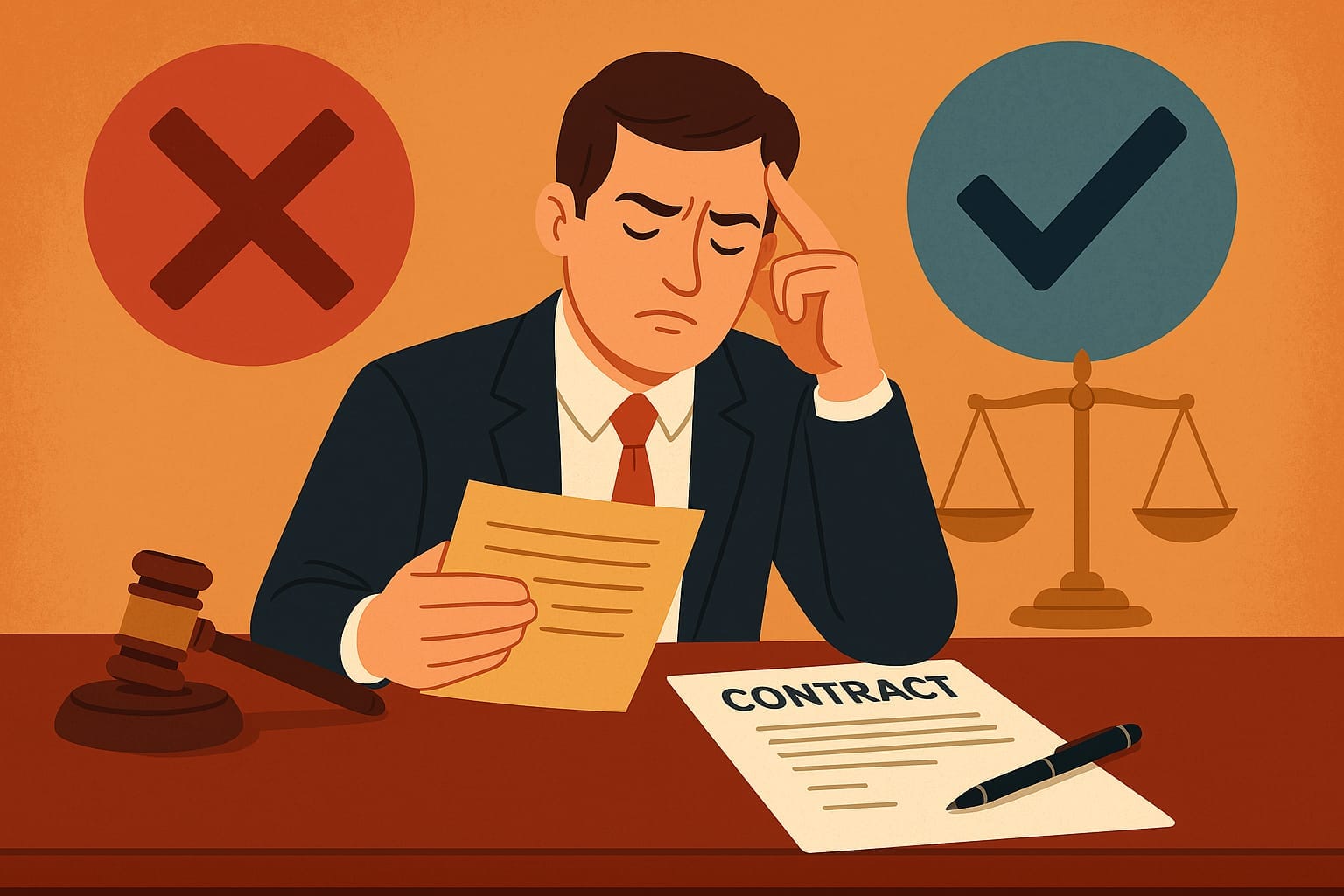

Introduction A contract is a legally binding agreement between two or more parties. However, in some cases, a contract may be considered void or voidable. It is crucial for clients to understand the differences between these two concepts, as they directly impact their legal rights and obligations.
First: When is a Contract Void? A void contract is one that has no legal effect from the moment it is created, as if it never existed. It cannot be enforced or rectified under any circumstances. A contract is void in the following cases:
Lack of Essential Elements:
Lack of Consent: If the contract was signed under coercion or threat.
Illegality: If the subject matter of the contract is unlawful (such as an agreement involving illegal activities).
Absence of a Legal Cause: If there is no legitimate legal reason for the contract.
Lack of Legal Capacity of One of the Parties:
If one of the parties is a minor or lacks legal capacity due to insanity or mental incompetence.
Violation of Public Policy or Morality:
Such as contracts involving human trafficking or illegal gambling.
Failure to Meet Legal Formalities:
Some contracts require a specific form to be legally valid, such as real estate sales contracts that must be officially notarized.
Impossibility of Performance:
If fulfilling the contract is impossible from the outset, such as agreeing to sell something that does not exist or is legally non-existent.
Second: When is a Contract Voidable? A voidable contract is legally valid but has a defect that gives one of the parties the right to request its annulment. The contract remains in effect unless it is contested in court. A contract is voidable in the following cases:
Defect in Consent:
Mistake: If one party made a fundamental mistake that affects the contract.
Fraud (Misrepresentation): If one party used deception or manipulation to induce the other party into the contract.
Coercion: If a party was forced to enter the contract under unlawful threats.
Exploitation (Unconscionability): If one party took advantage of the other party’s weakness to gain unfair benefits.
Lack of Legal Capacity of One of the Parties:
If one of the parties lacks full legal capacity, such as a minor who enters into a contract without a guardian’s approval.
Unlawful Purpose or Terms in Certain Cases:
If the contract includes unfair terms that lead to the exploitation of one party.
Serious Breach of Contractual Obligations:
If one party substantially breaches the contract, the other party may have the right to request annulment.
Subsequent Impossibility of Performance:
If fulfilling the contract becomes impossible after signing due to unforeseeable force majeure circumstances.
Conclusion Understanding the difference between a void and a voidable contract is essential for anyone engaging in legal agreements, whether in business, real estate, or other contractual dealings. It is always advisable to review contracts with a legal expert to ensure their validity and protect the rights of all parties involved. Additionally, parties should exercise due diligence when entering into contracts to avoid future disputes and ensure smooth execution of agreements.
Contact us via Whatsapp: +90 546 263 64 88

